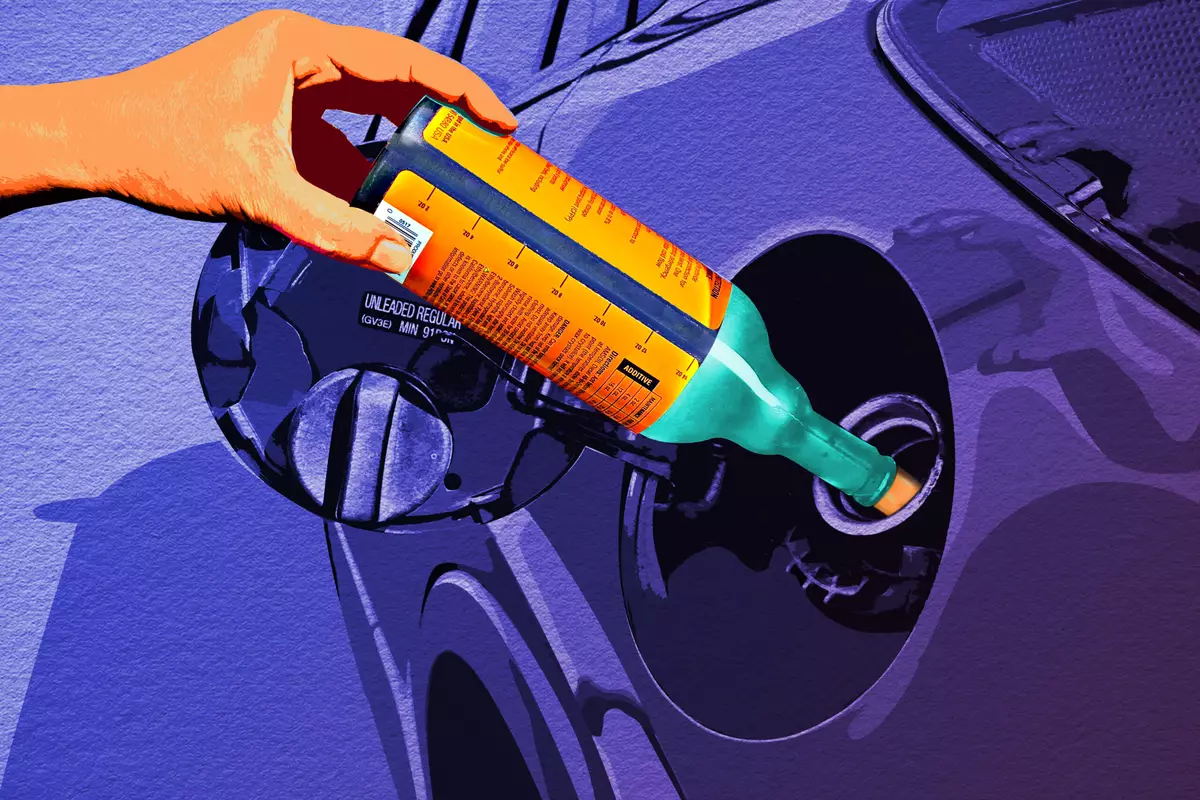Car Fuel Additives: What They Are and How They Benefit Your Vehicle
1. What Are Car Fuel Additives?
Car fuel additives are substances that you add to your car’s fuel tank to improve the performance and longevity of your engine and fuel system. These additives can be purchased separately and mixed with gasoline or diesel fuel, or they can be pre-mixed into fuel during the manufacturing process.
Fuel additives can come in a variety of forms, including:
- Liquids
- Powders
- Tablets
Depending on the type of fuel additive and its intended purpose, the benefits and applications can vary.
2. Types of Fuel Additives and Their Purposes
Fuel additives can be divided into several categories based on their intended function. Below are some of the most common types and their benefits:
1. Fuel Injector Cleaners
Fuel injector cleaners are some of the most common www.truth in24.com/. They help clean the fuel injectors, which can become clogged or dirty over time. Dirty injectors can result in poor engine performance, reduced fuel efficiency, and rough idling.
- Benefits:
- Restores optimal fuel injector performance
- Improves fuel combustion and engine efficiency
- Reduces misfires and rough idling
- Can help increase miles per gallon (MPG)
2. Octane Boosters
Octane boosters are fuel additives designed to increase the octane rating of your fuel. Octane is a measure of how much compression the fuel can withstand before igniting. A higher octane rating helps prevent knocking or pinging, which can damage the engine over time.
- Benefits:
- Increases the engine’s resistance to knocking
- Improves performance in high-performance or modified engines
- Can provide smoother engine operation under high loads
3. Fuel Stabilizers
Fuel stabilizers are essential for vehicles that are stored for extended periods (e.g., during winter months or when a vehicle isn’t used regularly). They prevent the fuel from degrading, oxidizing, or evaporating, which can lead to hard starting, fuel system corrosion, or engine damage.
- Benefits:
- Keeps fuel fresh for extended periods
- Prevents fuel degradation and varnish buildup
- Helps protect the fuel system during storage
4. Diesel Additives
Diesel fuel additives are specifically designed for diesel engines. These additives can improve fuel quality, prevent gelling in cold temperatures, and help keep the engine running smoothly.
- Benefits:
- Prevents fuel system corrosion
- Improves fuel combustion efficiency
- Reduces harmful emissions
- Prevents diesel fuel from freezing in colder climates
5. Fuel System Cleaners
These additives clean various components of the fuel system, such as the fuel lines, tank, and pump. Over time, debris and impurities can clog these parts, reducing fuel efficiency and causing damage. Fuel system cleaners dissolve carbon buildup and other contaminants, allowing the fuel system to work as intended.
- Benefits:
- Cleans the entire fuel system
- Restores fuel flow and pressure
- Improves fuel efficiency and engine performance
6. Fuel Injector and Carburetor Cleaners
These additives are targeted specifically to clean the fuel injectors and carburetors of the engine. Carbon and other deposits can build up in these critical components, resulting in poor fuel combustion and a loss of power.
- Benefits:
- Restores optimal fuel flow
- Helps prevent engine knocking or hesitation
- Improves fuel efficiency and throttle response
7. Lubricants and Anti-Friction Additives
Lubricants and anti-friction additives are designed to reduce friction between engine parts. In internal combustion engines, friction can result in wear and tear, reducing engine life and performance. These additives create a thin protective layer over parts, reducing friction and improving efficiency.
- Benefits:
- Reduces wear and tear on engine components
- Improves fuel efficiency by decreasing friction
- Extends engine life
3. How Do Car Fuel Additives Work?
Car fuel additives work by either enhancing or modifying the properties of the fuel or cleaning and maintaining the fuel system. The way they work depends on the specific type of additive:
- Cleaning Additives: These break down carbon deposits and other buildups that can clog or impair the functioning of the fuel system. As the fuel circulates through the system, the cleaner additives dissolve the deposits and improve the overall flow of fuel.
- Boosting Additives: Octane boosters increase the fuel’s resistance to compression, allowing the engine to run at higher performance without knocking.
- Lubricating Additives: Anti-friction additives reduce friction in engine parts, leading to less wear, less heat, and better performance.
- Stabilizing Additives: These prevent the fuel from degrading when stored for long periods, reducing the risk of hard starts, corrosion, and performance loss.
4. Benefits of Using Car Fuel Additives
Using car fuel additives can offer a number of benefits, including:
1. Improved Fuel Efficiency
Fuel additives such as injector cleaners and fuel system cleaners help optimize combustion and improve the overall fuel efficiency of your vehicle. By cleaning injectors, reducing friction, and enhancing the fuel’s ability to combust, these additives can help your engine run more efficiently, potentially saving you money at the pump.
2. Increased Engine Performance
Fuel additives, particularly octane boosters, can improve the overall performance of your engine. They can prevent knocking, optimize combustion, and reduce carbon buildup, all of which result in smoother acceleration and more responsive throttle control.
3. Enhanced Longevity of the Fuel System
By cleaning and lubricating the fuel system, fuel additives can help prevent the buildup of harmful deposits in critical engine components, thus reducing wear and prolonging the life of the engine and fuel system parts.
4. Prevention of Fuel System Issues
Fuel system problems, such as clogged injectors, fuel lines, and pumps, can be expensive to repair. Regular use of fuel additives can reduce the likelihood of such issues by keeping your fuel system clean and well-maintained.
5. Better Cold-Weather Performance
Diesel additives, in particular, are formulated to help prevent fuel from gelling in cold temperatures. In colder climates, this can be a lifesaver, ensuring that your vehicle continues to perform well even in freezing temperatures.
5. Are Fuel Additives Worth It?
While fuel additives can provide several advantages, it’s important to understand that they are not a magic solution. Regular maintenance, proper driving habits, and following your vehicle’s recommended service intervals will play a much more significant role in maintaining your vehicle’s performance and longevity. However, when used correctly and for specific purposes (like cleaning injectors or boosting octane), fuel additives can offer noticeable improvements in engine performance, fuel efficiency, and the overall health of your fuel system.
6. When Should You Use Fuel Additives?
You should consider using fuel additives in the following situations:
- Regularly to maintain clean injectors and fuel systems
- When you notice poor fuel efficiency or rough engine performance
- When you store your vehicle for an extended period, especially with a fuel stabilizer
- If your vehicle is prone to knocking or pinging (octane boosters can help)
- Before or after a long winter to ensure the fuel system is in good condition
7. How to Use Car Fuel Additives
Using fuel additives is simple:
- Select the appropriate additive based on your needs (e.g., fuel injector cleaner, octane booster, etc.).
- Follow the instructions on the packaging, which will indicate the proper dosage for your vehicle.
- Add the recommended amount of the additive to your gas tank before filling up, allowing the additive to mix with the fuel.
- Drive normally to allow the additive to circulate through the fuel system.
8. Conclusion: Should You Use Fuel Additives?
Fuel additives can be an effective way to improve your vehicle’s performance and maintain the longevity of its fuel system. While they aren’t always necessary for every car, they can provide valuable benefits in terms of efficiency, engine health, and fuel system maintenance. If you notice signs of poor fuel performance or want to prevent potential issues, using a fuel additive may be a smart choice for keeping your car in optimal condition.
Always choose the right additive for your car and follow the manufacturer’s recommendations for best results. Regular maintenance combined with the occasional use of fuel additives can keep your car running smoothly for years to come.












